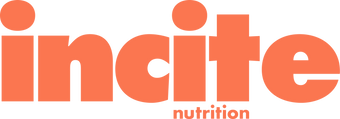The Secrets to Muscle Gain
OK, so these aren’t necessarily secrets per se…but what you’re about to read are the key things to know when it comes to gaining muscle.
Muscle is back in vogue. Men want a muscular, athletic physique and women want a toned, lean appearance. And it’s not all about how you look. When it comes to building muscle there are a whole host of health benefits, including increased strength, increased metabolic rate (you’ll burn more calories at rest than if you have less muscle) and even improved blood sugar control which will play a key role in reducing your risks for health problems such as type 2 diabetes!
So, what are the key things to know that will help you in your quest to build healthy, lean muscle tissue?
Let’s take a look…
Resistance Training
Whilst nutrition plays a significant role in muscle gain, you’ll not get anywhere without resistance training. Lifting weights, with progressive overload is a non-negotiable if you want to build muscle. If you’re a complete beginner the great news is that you’re in for a treat as “newbie gains” are on offer as you give your muscles a brand-new training stimulus. Aim to train with weights at least 3 times per week, using 2-3 sets of 8-12 repetitions for 8-10 multi-joint exercises that stress the major muscle groups. You can make use of a range of equipment including machine weights, free weights, kettlebells and resistance bands.
Calorie Surplus
Gaining muscle is not an easy process…nobody lifted weights one day and woke up the next looking like Arnie! It takes time, and consistency both in the gym and with your diet to gain muscle. Whilst it is scientifically possible to gain muscle in a calorie deficit, this isn’t optimal and you’ll stand a far greater chance of success by consuming more calories than you’re burning. But, a word of warning…this isn’t a green light to east everything in sight. To avoid excessive fat gain too, you only need to be in a 200-300 calorie surplus to help with the muscle building process.
Protein
A key component of a muscle-building diet is protein. Found in foods such as meat, dairy, beans, nuts and food supplements such as whey protein it provides the building blocks (amino acids) for muscle growth. On average, most adults are consuming well below the optimal amount of protein so this can be quite difficult to manage and will take a concerted effort. Aim to consume between 1.6-2.2g/kg bodyweight protein per day during your muscle-building phase.
Protein Timing
To optimise Muscle Protein Synthesis (MPS) you need to hit the so-called ‘leucine threshold’. Leucine is a branched-chain amino acid and is essential to stimulate MPS. Rather than eating all your protein in one go, aim to ‘drip-feed’ it throughout the day approximately every 3-4 hours in an amount of around 25 grams at each meal.
What about Carbohydrates and Fats?
Carbs and fats play key roles in helping to build muscle. Carbs provide a great source of energy to support your training and to hit your daily calorie target, and the so-called ‘good fats’ have also been linked to good muscle health and strength; aim to get your weekly dose of health-boosting Omega 3 fats from foods like oily fish, and consume your carbs by eating whole-grains, potatoes, oats, fruits and vegetables.
Do you need supplements?
The supplement industry would have us all think that if we want to build muscle, we can’t do it without a whole pantry full of fancy supplements. There are some supplements that can definitely help you in the pursuit of your muscle building goals, but these really should be seen as the ‘cherry on top’ as if the rest of your diet is poor then you’re wasting your time (and money). If you struggle to hit your higher protein intake then whey isolate protein is a superb and natural supplement, and other supplements that have plenty of evidence to back their use for muscle gain include creatine monohydrate and caffeine.
There are a few other areas that could be considered for muscle gain, but implement the points outlined above and you won’t go too far wrong.

